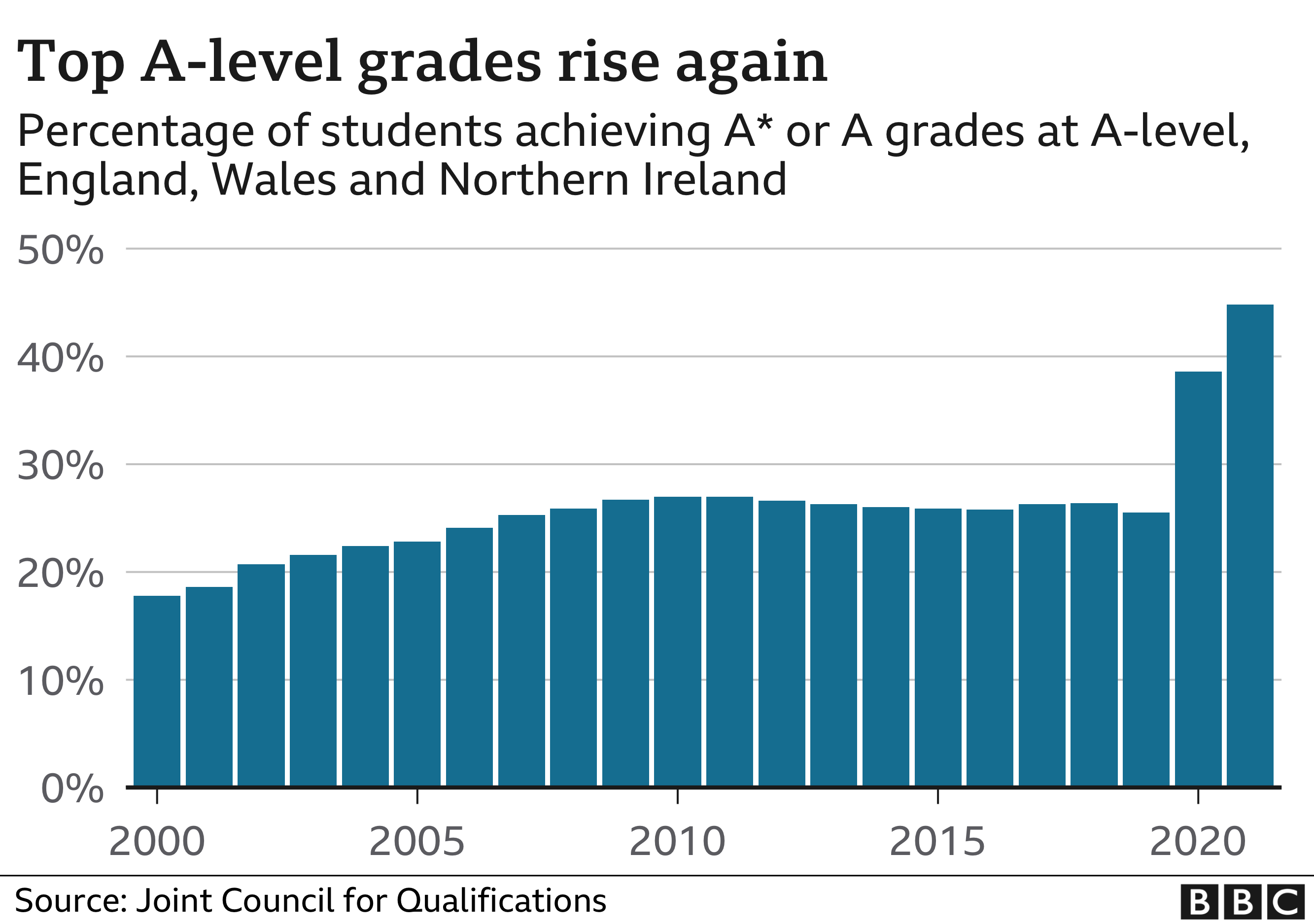A-level results 2021: Top grades reach record high
The BBC reported top grades for A-level results for England, Wales and Northern Ireland have reached a record high – with 44.8% getting A* or A grades.
This second year of replacement results after exams were cancelled, has seen even higher A Level results than last year when 38.5% achieved top grades.
The sharp rise in top grades at A-level means that the proportion getting top A* and A grades has risen by almost 75% since the last time conventional exams were taken in 2019.

With more top grades and record numbers applying for university, it will put pressure on places for the most competitive universities and courses. On Tuesday morning, the admissions service UCAS said a record 396,000 students have been confirmed in their first choice course – up 8% on last year.
Simon Lebus, interim chairman of the exams watchdog, Ofqual, said: “We’ve always said outcomes from this year were likely to be different,” said but he assured students they had been “fairly treated” and grades, based on teachers’ judgements, could be trusted.
- Girls got more top grades, 46.9%, than boys 42.1%
- A* and A grades in England 44.3%
- Independent schools: 70.1% A* and A grades
- Comprehensive schools: 39% A* and A grades
- London 47.9% A* and A grades, north east of England 39.2%
Exam board officials said the higher grades this year reflected that no one had a “bad day” in an exam and that students had “multiple chances” to show that they could do well.
Schools, colleges and private exam centres could use a range of evidence for grades, including “mini-exams”, coursework and mock exams – with one in five having a sample of their grades checked by exam boards.
Group Marketing Director for Tutors & Exams, commented ‘the higher attainment this year, over previous years, was widely expected and shouldn’t detract from the amazing achievement of all those receiving their A Level grades. Grades awarded this year are not comparable with those achieved when exams were last held in 2019. Why? Because a different way of measuring attainment has been used to determine grades. The term ‘grade inflation’ has been bandied about but that’s a rather simplistic view given the complexity in awarding grades without a standardised approach to assessment. For now let us celebrate the achievement of our learners and wish them well on whatever path they choose going forwards.’




